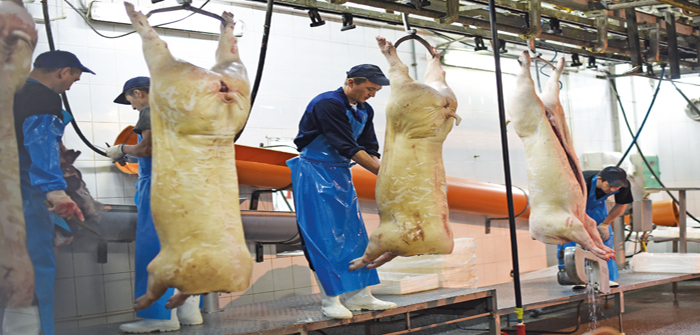The Government is facing calls to ensure the farming industry continues to have access to permanent EU labour after we leave the EU, following the announcement on a seasonal workers’ scheme today.
After extensive lobbying from the NFU, Defra and the Home Office have agreed to introduce a pilot scheme providing visas for up to 2,500 non-EU workers a year to work on fruit and vegetable farms for six months. The SAWS initiative will run between spring 2019 and December 2020.
Defra Secretary Michael Gove said: “We have listened to the powerful arguments from farmers about the need for seasonal labour to keep the horticulture industry productive and profitable.”
Home Secretary Sajid Javid said: “This pilot will ensure farmers have access to the seasonal labour they need to remain productive and profitable during busy times of the year.”
NFU President Minette Batters said: “Farmers and growers have seen worker availability tighten significantly in recent years, with the shortfall to July this year reaching ten per cent. Growers will take great confidence in knowing that the government is listening during what have been extremely testing and uncertain times for the sector.”
NPA chief executive Zoe Davies also said it showed the Government was listening to industry concerns.
“However, it is important that the conversation now moves onto the need for the wider farming, processing and allied sectors to continue to have access to permanent EU labour after we leave the EU,” she said.
“As our survey of members showed, the UK pig industry is hugely reliant on permanent EU workers to function. We fully support measures to attract more home-grown workers to the sector, but we will also continue to stress the need for policies that make EU citizen welcome to live and work in this country.
“Without them, the UK pig sector will not be in a position to grasp the opportunities Brexit might present in the global or domestic markets.”
CLA President Tim Breitmeyer said: “This pilot must only be a starting point, and only scratches the surface. It will allow for just 2,500 seasonal workers while the number of seasonal and permanent migrant workers currently employed by rural businesses across the UK is far greater.
“A much broader solution is needed to address concerns about availability of labour after Brexit across the rural economy, including seasonal agricultural workers but also longer-term professionals and managers in farming and in other crucial countryside businesses such as rural tourism, veterinary services, food processing, construction and leisure.”
NPA survey results
The NPA’s October 2017 survey of members across the pig industry showed:
- Just over a half of respondents employed at least one non-UK worker, with 24% hiring more than a quarter of their labour from overseas.
- Around 90% of businesses using non-UK labour employed them on a permanent basis, with 94% of non-UK workers coming from the EU.
- 64% of those employing EU labour said it had become harder to find EU labour since the vote. None said it had got easier.
- Nearly half of those employing EU labour said EU workers they employed were considering leaving the UK due to uncertainty over Brexit.




